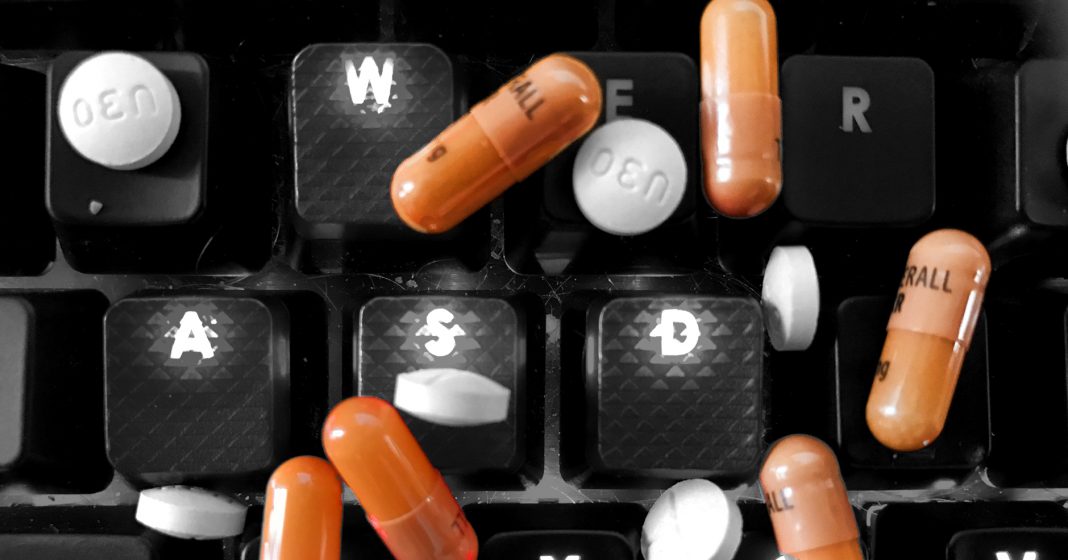Use of performance enhancing drugs is banned in traditional sports. Testing positive for steroids as a professional athlete leads to disqualification and serious–potentially irreparable–damage to your public image. But when it comes to esports, stimulant abuse is the elephant in the room. The role of performance enhancing drugs in esports has been acknowledged by both gaming communities and mainstream media. However, apart from ESL’s decision to begin drug testing players last year, no other party has been willing to commit time, money, or resources to address stimulant use among professional gamers.
It’s no secret that prescription ADHD medication is relatively common in gaming circles. But when does use become abuse?
In 2015, ex-Cloud9 CS:GO player Semphis claimed that Cloud9 were using Adderall during ESL. While his claim about amphetamine abuse was widely reported on, community members were surprised that the story made headlines in the first place–stimulant use in esports was, at least at the time, an “open secret.” Is stimulant use the same as PEDs in esports? The jury’s still out, but when drug testing was implemented by ESL later that year, no players tested positive. It’s worth noting ESL’s logic behind implementing the testing, as the organization asserted that focus-enhancing drugs gave players an unfair advantage, similar to steroid use in physical sports. But steroid use is semi-permanent, and the effects linger for a while. Aside from some research that suggests Adderall use in individuals with ADHD can alter their brain structure, amphetamines need to be taken regularly in order to be effective. This “short term gain” is all that stimulants have to offer: a temporary boost in cognitive function, focus, and performance that wears off as the drug begins to leave your system.
After ESL began conducting drug tests, we’re faced with a tough question: if a player tests positive for non-prescribed stimulants, should they be banned from competition for life? If the player stops using Adderall, the performance enhancement should disappear, thereby eliminating the unfair advantage. Would a player kicked out of a tournament for illicit substance use be able to return to competitive play after testing ‘clean’ for banned substances?
https://twitter.com/Peterpandam/status/838290825641545731
If players become dependent on drugs to function, their careers are seriously jeopardized. Prescription stimulant abuse in esports takes away from how viewers appreciate player talent, especially when it comes to the court of public opinion. But even if gamers find the use of stimulants ‘unfair,’ many more will admit to playing games while under the influence. Some people think smoking pot, another substance ESL looks for during their drug testing, makes them better at their game of choice. Are suburban dads who light up a joint before queueing for a game of Dota a threat to competitive integrity? Many of us really like coffee, which is also a mild stimulant. When it comes to drug use in competitive gaming, there’s no shortage of blurred lines and grey areas, especially if we start talking about nootropics in esports.
Prescription Abuse in Esports: Legal Quagmire
A significant percentage of the population, especially in North America, is prescribed focus-enhancing drugs because they actually need them. Should pro gamers in this situation be exempt from rules governing the use of prescription stimulants? Companies like ESL would presumably have a riot on their hands if they demanded that players disobey the instructions of their healthcare provider and stop taking medication the that’s been prescribed to them.
There’s an interesting parallel between esports professionals who need Adderall for medical reasons and the case of the transgender high school wrestler that made headlines last week. In both cases, the drugs needed manage their symptoms have the potential to give them an unfair advantage in their sport. Critics of the young wrestler have argued that the use of testosterone injections to treat his gender dysphoria was unfair to his opponents.
Should Mack Beggs have stayed away from wrestling because he was undergoing testosterone therapy? Should young pro gamer hopefuls with ADHD abandon their dreams because the medication they’re prescribed has side effects that help them compete?
I don’t really know how to tackle drug use in the realm of esports. My knee-jerk reaction is to ban non-prescription use of performance enhancing drugs to preserve the competitive integrity of esports. That being said, I’ve honestly got no idea how to implement an effective system in a time- and cost-efficient fashion. To put it bluntly, attempting to regulate the use and abuse of performance enhancing drugs in esports sounds like a bureaucratic clusterfuck.
How would tournaments deal with decriminalized drugs? Marijuana use is totally legal in the state of Washington, but it’s not legal in other states or other countries. With the rise of “designer” and synthetic drugs, many of which have stimulant properties similar to amphetamines, would drug testing even detect these substances? Who decides which substances are banned?
You see what I’m getting at here.
In a Reddit comment, Godz claimed that he’s seen Dota players take amphetamines for non-prescription reasons. While stimulant abuse doesn’t seem as common in Dota as it does in CS:GO, it would be foolish to claim that it isn’t going on behind the scenes.
